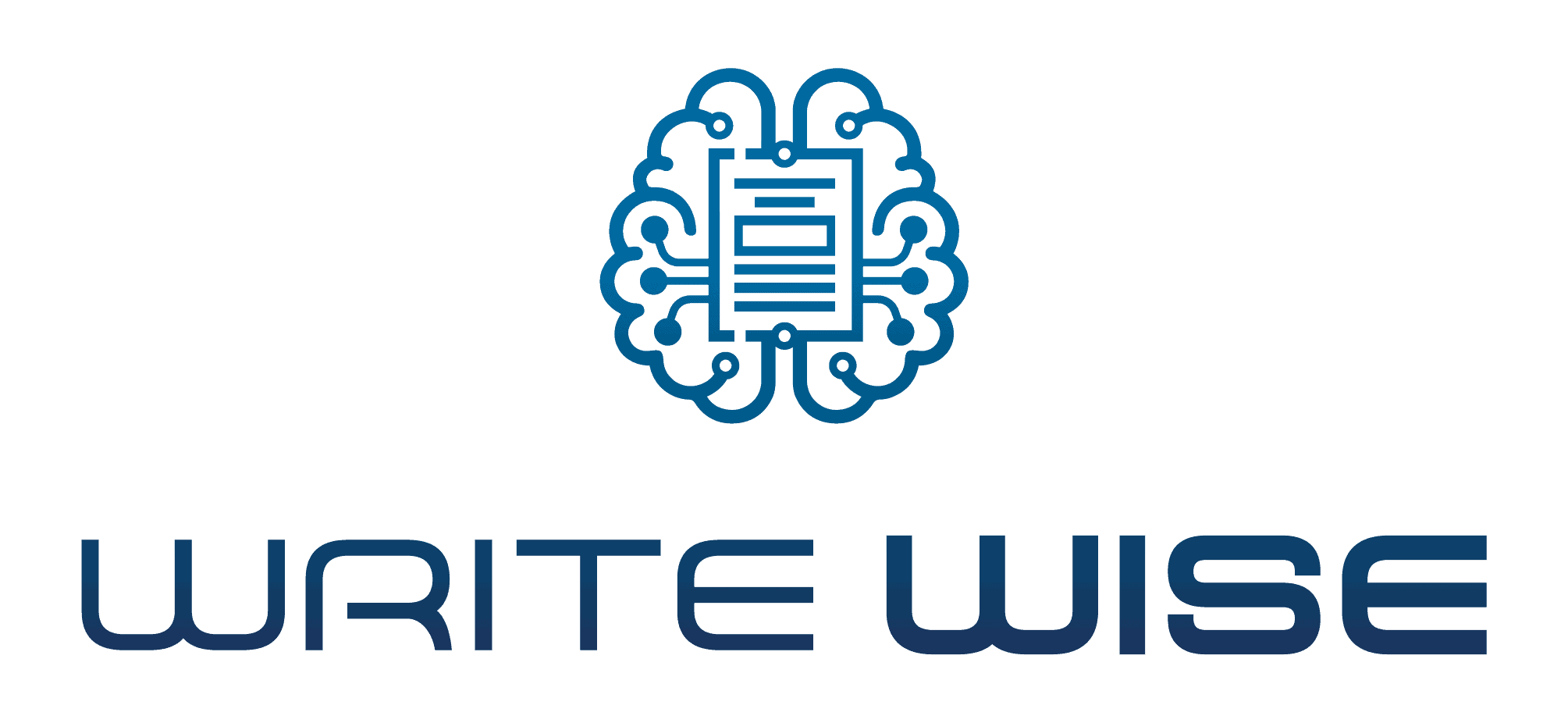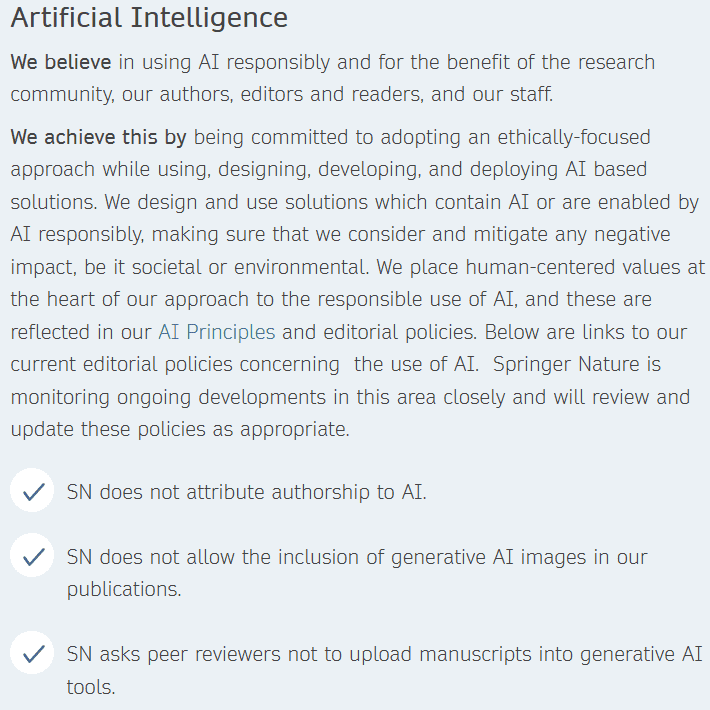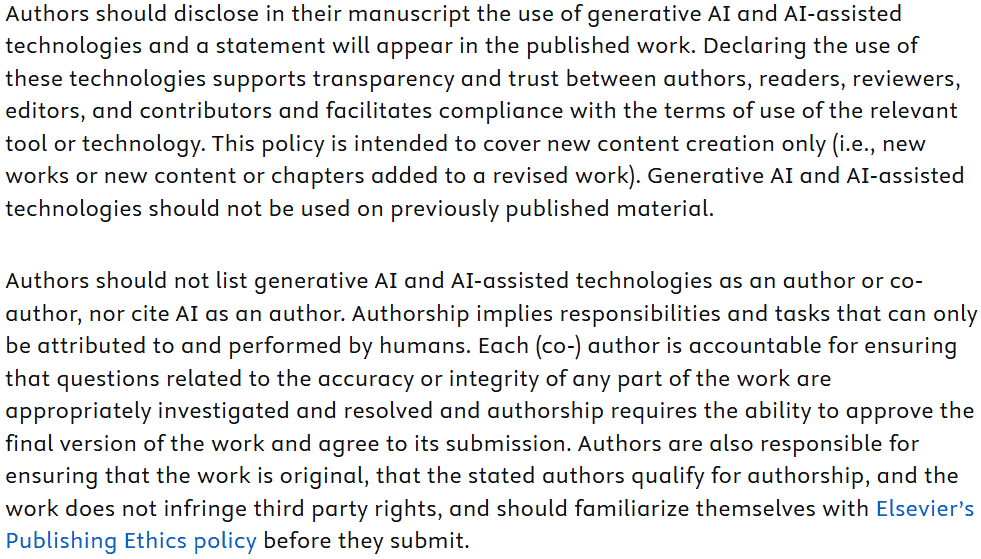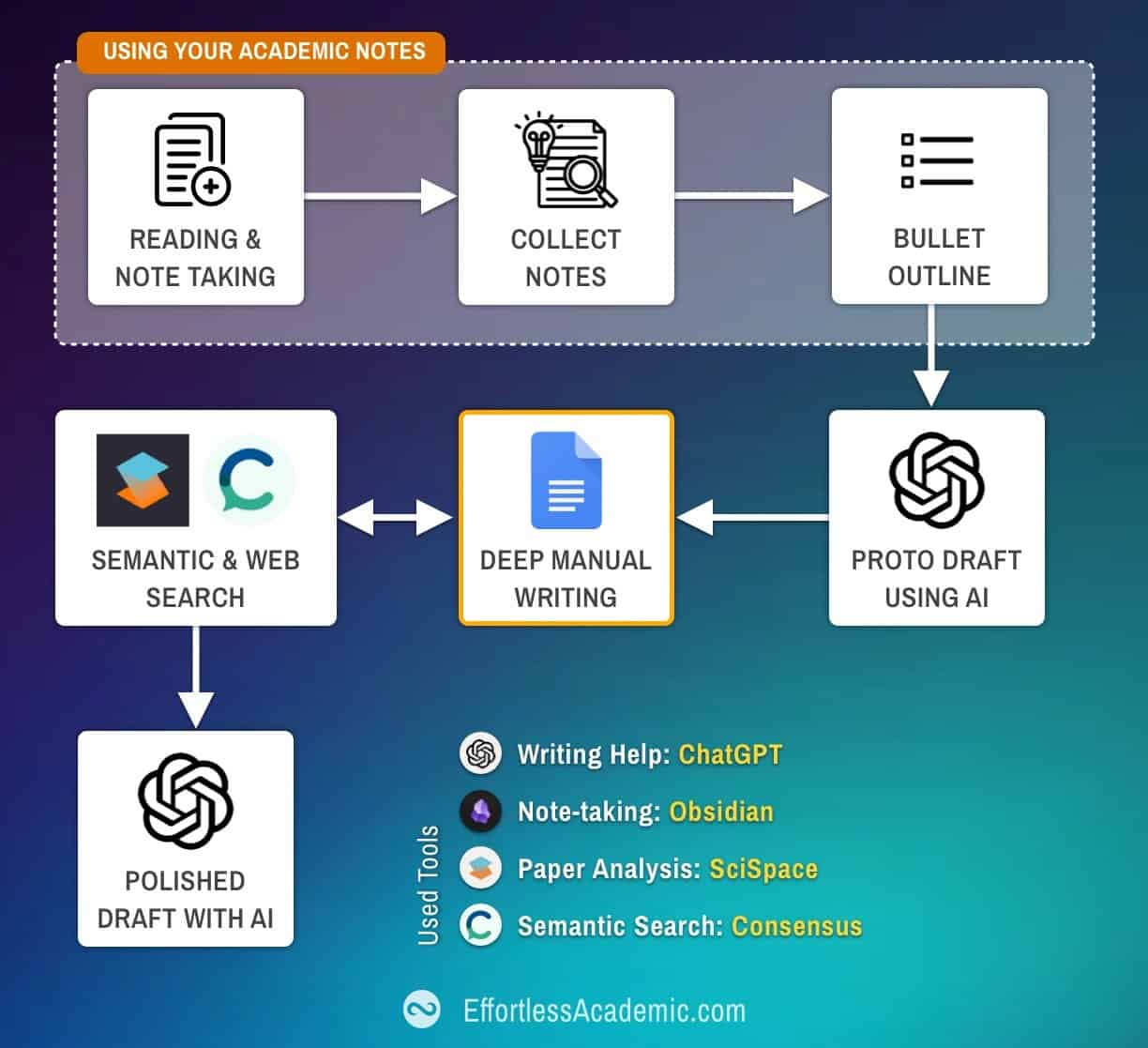Ethical Use of AI in
Academic Writing:
Academic Writing:
Guidelines & Best Practices
Learn how to use AI tools responsibly in research and publishing.
Table of Contents
Ethical Use of AI in
Academic Writing:
Academic Writing:
Guidelines & Best Practices
Learn how to use AI tools responsibly in research and publishing.

Introduction: The Rise of AI in Academic Writing
Introduction: The Rise of AI in Academic Writing
Artificial Intelligence (AI) is transforming academic writing. Tools like ChatGPT, Claude, and Bard can help researchers streamline their work, improve clarity, and structure complex arguments. However, with great power comes great responsibility. The use of AI in academic writing raises ethical concerns about authorship, plagiarism, and misinformation.
This guide explores how to use AI responsibly while maintaining academic integrity.
What is Generative AI and How Does It Work?
What is Generative AI and How Does It Work?
What is Generative AI and How Does It Work?
Generative AI is a type of artificial intelligence that creates new content, including text, images, and even music. It relies on Large Language Models (LLMs), which predict the most likely next word based on patterns in vast amounts of data.
However, AI does not “think” like a human—it predicts rather than understands. This means:
✔️ It can generate coherent text quickly.
❌ It does not verify facts or cite real sources.
❌ It may “hallucinate” (invent) information.
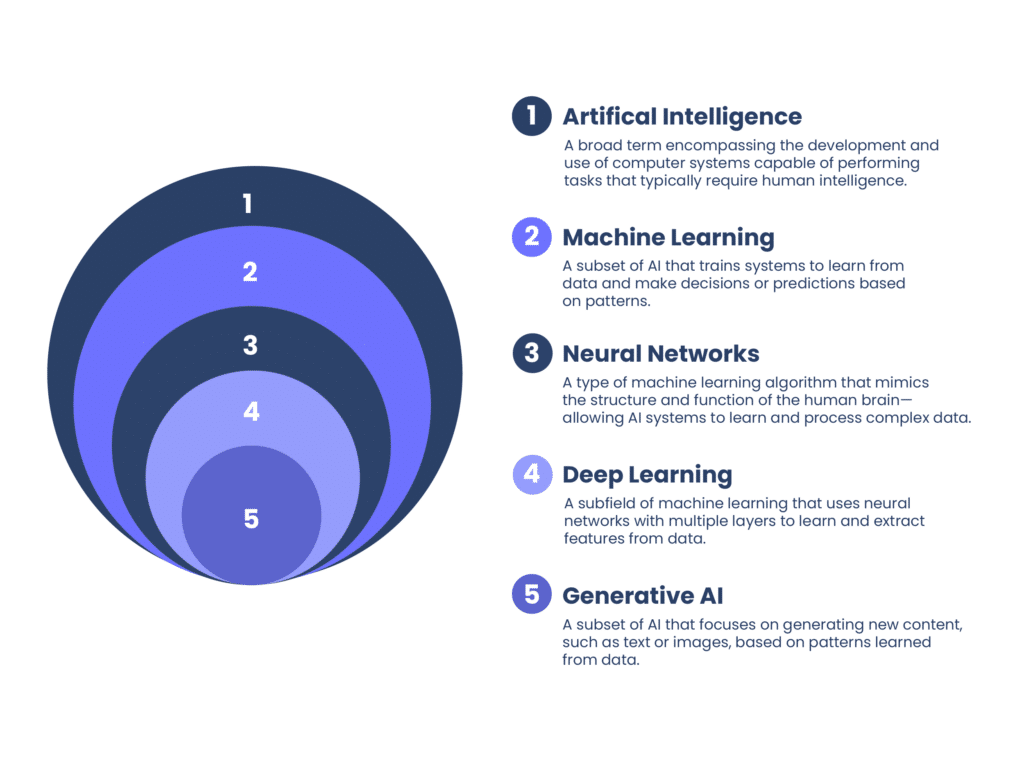
Opportunities and Ethical Challenges
Opportunities and Ethical Challenges
Opportunities and Ethical Challenges
✅ How AI Can Help Academic Writers
- Faster Drafting: AI can generate text quickly, reducing writer’s block.
- Improved Structure: AI can organize complex ideas into logical sections.
- Language Assistance: AI helps non-native speakers refine their writing.
❌ Ethical Challenges in AI-Generated Writing
🚨 Plagiarism Risks: Who is the true author of AI-generated content?
🚨 AI Hallucinations: AI can generate false citations and misleading data.
🚨 Over-Reliance: AI cannot replace critical thinking and originality in research.
Best Practices for Ethical AI Use
Best Practices for Ethical AI Use
✔️ Use AI as an Assistant, Not an Author
AI should support research, not replace human expertise.
✔️ Verify All AI-Generated Content
Check AI-generated information against credible sources.
✔️ Cite AI Use Transparently
Always disclose AI assistance if it was used in any stage of writing.
✔️ Avoid Copy-Pasting AI Outputs
AI-generated drafts should be edited, refined, and fact-checked.
AI in Different Stages of Academic Writing
AI in Different Stages of Academic Writing
AI in Different Stages of Academic Writing
✔️ Outlining & Structuring
AI Can Help With:
- Organizing research sections
- Creating summaries of complex ideas
- Suggesting logical flow for arguments
✔️ Drafting & Refining
AI Can Assist With:
- Generating introductory paragraphs
- Improving readability and style
❌ What AI Should NOT Do
- Replace human analysis and original research
- Generate references without fact-checking
- Write full research papers without expert input
AI Policy and Guidelines from Journals
AI Policy and Guidelines from Journals
AI Policy and Guidelines from Journals
AI Policy and Guidelines from Journals
Most journals and/or publishers have policies in place regarding the use of Generative AI in the writing process. The vast majority allow the use of this technology, but with due citation. Following are some examples.
Publishers’ and journals’ instructions to authors on use of generative artificial intelligence in academic and scientific publishing: bibliometric analysis
BMJ 2024; 384 doi: https://doi.org/10.1136/bmj-2023-077192 (Published 31 January 2024)
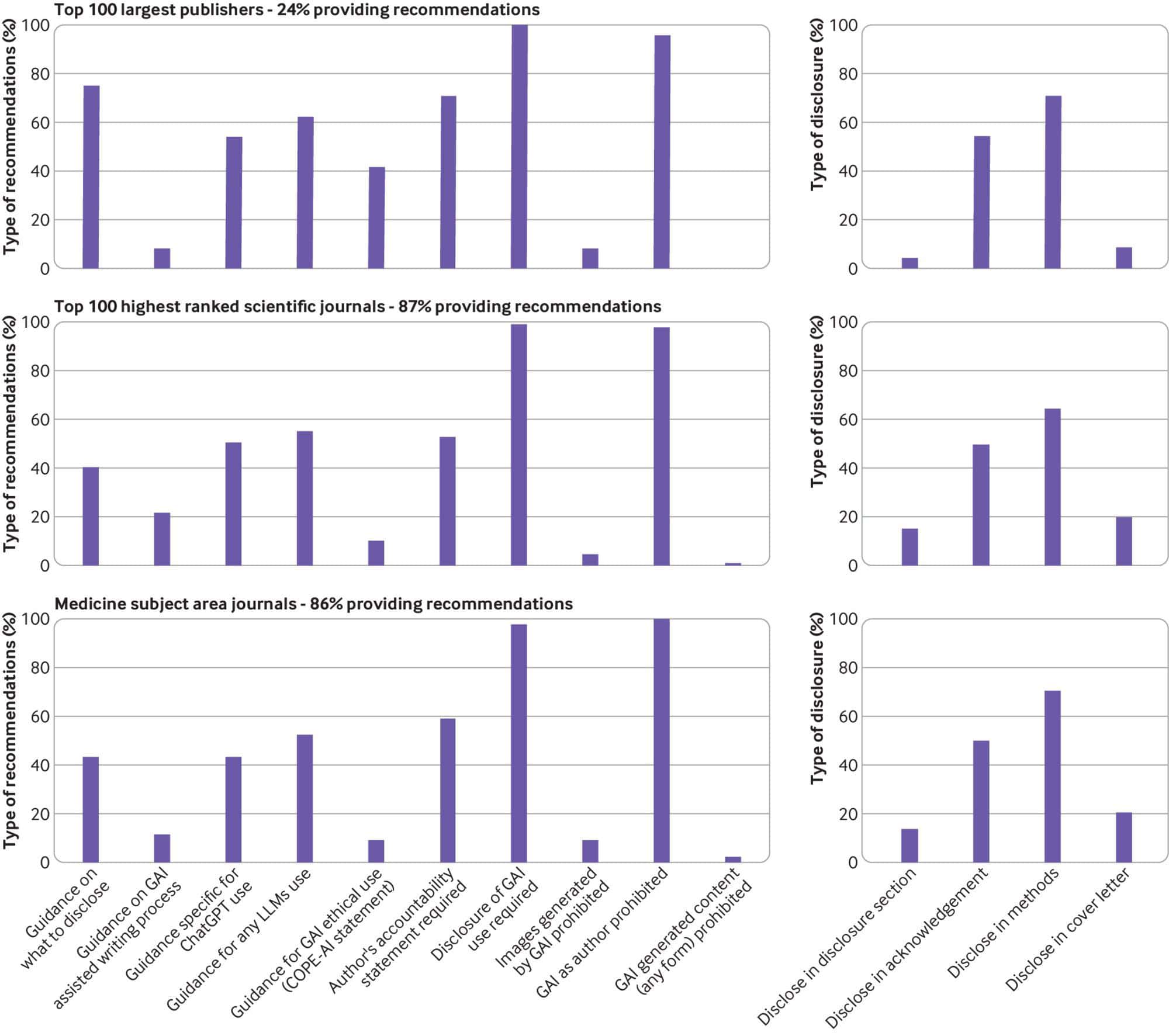
Fig 1
Types of recommendations and types of disclosures for generative AI recommended in author guidelines for top 100 largest academic publishers and top 100 highly ranked scientific journals. A subanalysis was performed of journals listed in the medicine and multidisciplinary subject area of Scimago. AI=artificial intelligence; COPE=Committee on Publication Ethics; GAI=generative artificial intelligence; GPT=generative pretrained transformer; LLMs=large language models
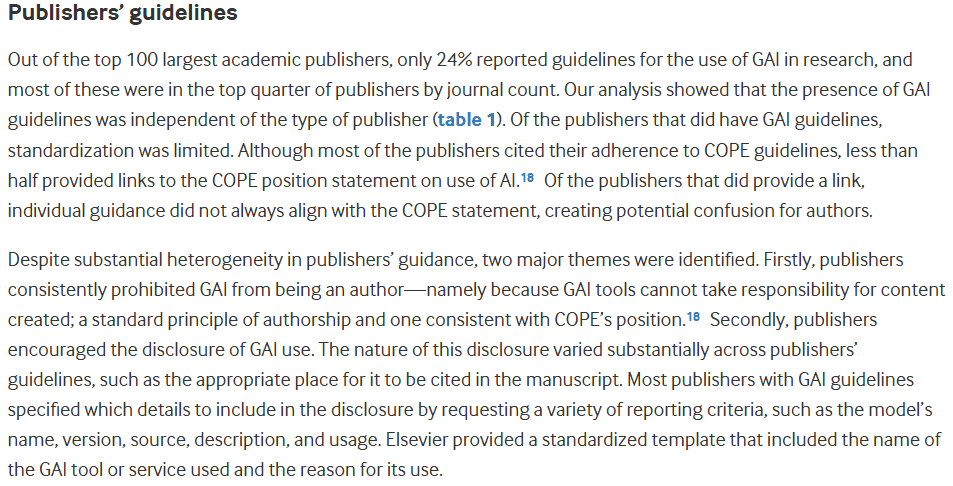
Key Takeaways & Additional Resources
Key Takeaways & Additional Resources
✅ AI is a tool, not a replacement for human expertise.
✅ Always verify and refine AI-generated content.
✅ Disclose AI assistance transparently.
✅ Stay informed about evolving academic policies on AI.
🔗 Is ChatGPT making scientists hyper-productive? The highs and lows of using AI
🔗 ChatGPT becomes first non-human on Nature’s top ten list of researchers
🔗 At least 10% of research may already be co-authored by AI
🔗 Words That Reveal AI Usage
Key Takeaways & Additional Resources
Key Takeaways & Additional Resources
